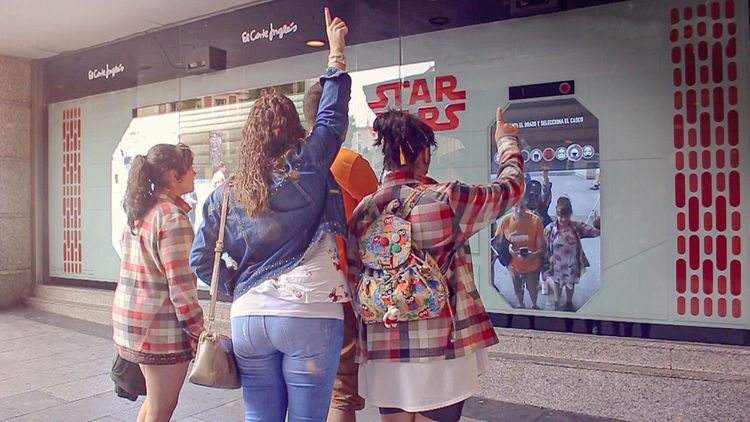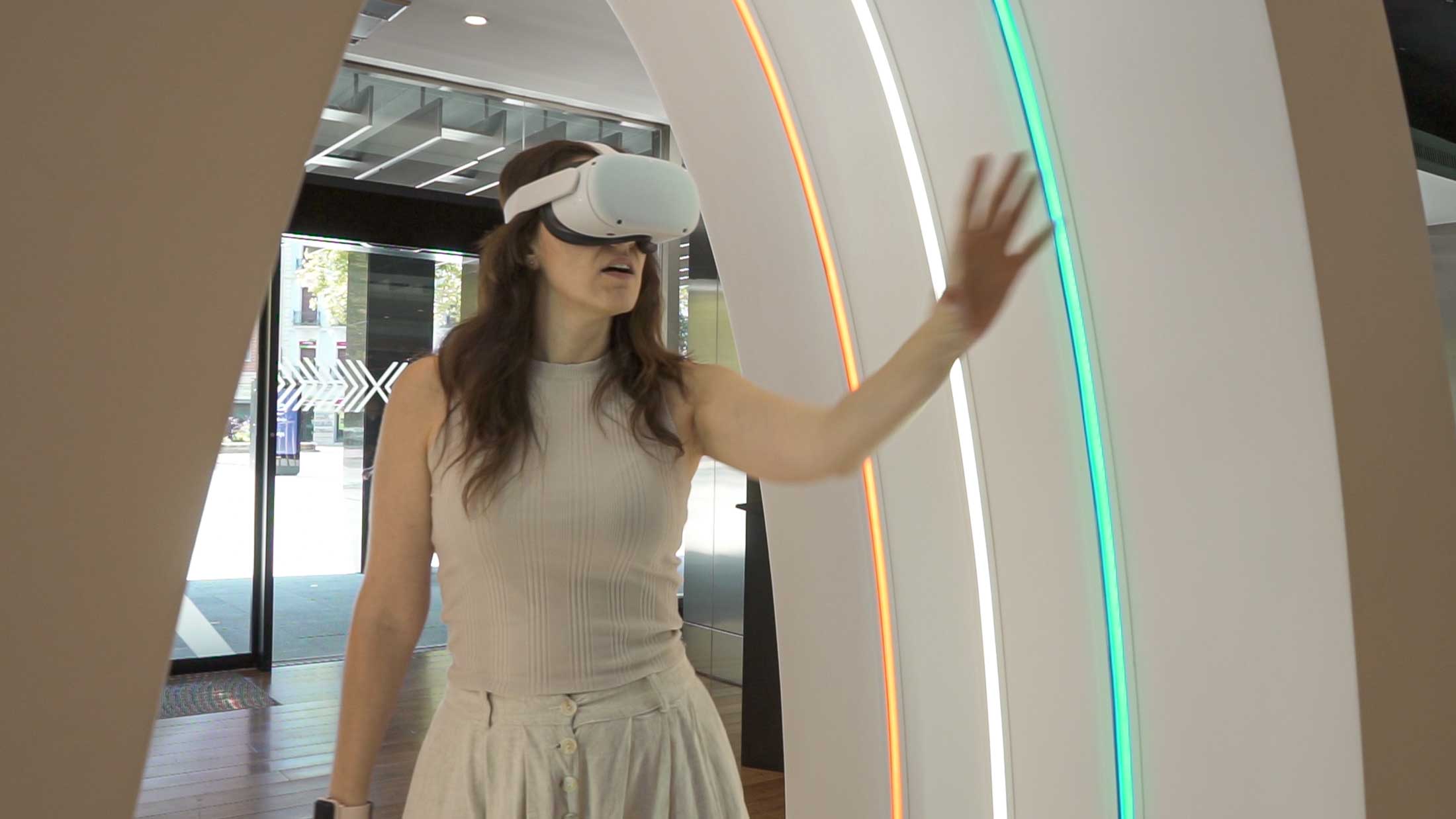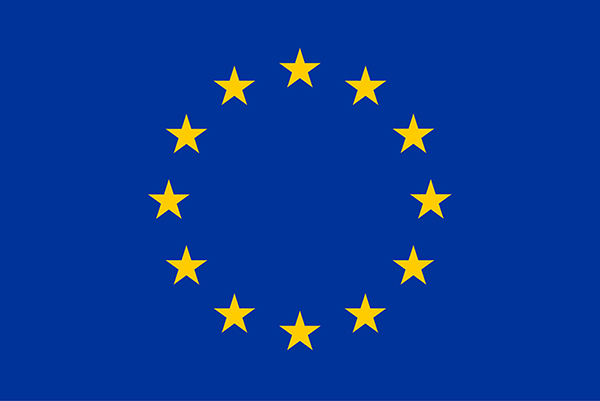Marketing in the Metaverse: keys to stand out
Technology is transforming all company strategies, especially marketing strategies. In this context, the Metaverse and the new virtual worlds have become a new frontier for brands looking to innovate and connect with digital-native audiences.
Thus, marketing in the Metaverse is identified with the search for connection in interactive worlds and augmented realities. In the search for new opportunities to create personalized, interactive and deeply immersive brand experiences. As the Metaverse continues to gain popularity, companies must adapt to the new rules of the game to stand out in this environment.
In this post, we will discover the essential keys for brands to make the most of Metaverse marketingThe company has been able to impact consumers in this emerging reality.
Metaverse, the future of digital marketing
But first, let's review the basic concept of Metaverse. This term refers to the different connected virtual spaces where users can interact with each other and with brands. A three-dimensional leap to what we know today as the Internet where the physical and digital environments intermingle. Some of the emerging technologies on which these experiences are based are the Virtual Realitythe Augmented Reality or the Spatial Computingamong others.
The Metaverso offers innumerable marketing possibilities and engagement with the target audience in the virtual world. These digital natives are targeted by brands through different marketing strategies in the virtual world. Metaverse what they are looking for is experiences, simulations, brand gamification. Far beyond the information that can be found on the website. What these new audiences are looking for in the Metaverse is entertainment and emotional connection with companies.
This fact is also a great opportunity for marketing, as it makes the brands stand out from the competition for creating unique and engaging experiences. It represents a change in the way the audience receives marketing, and because it also allows users to make purchases of virtual or real products.
The virtual spaces that shape the Metaverse present a number of advantages for companies that implement them in their marketing strategies. Not only do they have at their disposal statistical data on the use and operation of the space, they can also update the content in real time, generate connection with the online community and develop gamified experiences for users. Experiences focused on pre-sales, virtual simulation and product cross-selling.
Different strategies that have already been implemented in the virtual space of Exclusiverse. A case of marketing success in the Metaverse, this time in the tourism and travel sector for Exclusive Traveler Clubin which thanks to virtual tours, conversion has increased by 20% compared to the traditional sales strategy.
You can continue to read about this success story in our post Digital Membership: definition and main advantages.
Marketing strategies in the Metaverse
Audience behavior has changed in recent years. We no longer connect with users in the same way, or with the same ease as before. Now, users are oversaturated and outside of what are known as the main channels of traditional advertising.. The video gamesSocial Networks and streaming platforms are their new media. That is why they also become the new communication and advertising channels for brands.
Audiences no longer feel they connect with brands through ads, they are driven by recommendations, trends and the virality of the moment on the Internet. They also want to live experiences, where technology plays a key role. Either because these experiences take place in phygital environments or virtual 100%, users connect with brands in much more experiential ways. The marketing in the metaverse is the ideal opportunity to approach and attract users, creating new experiences for them..
The following is an analysis of the main marketing strategies of companies develop in the Metaverse:
From storytelling to storyliving
One of the big changes in the use of the Metaverse in marketing strategies is the from storytelling to storyliving. Change from the traditional storytelling in which brands told stories in a unidirectional way to make the audience participate in the story told by the brands. Taking a much more active role and creating deeper and more meaningful connections, generating greater involvement and loyalty.
This was done by the Rafa Nadal Academy by Movistar in its marketing and viralization campaign, where people were invited to visit Rafa Nadal's academy themselves, traveling virtually to Manacor (Mallorca). The objective was to present the facilities, the teaching methodology and the values of effort and sacrifice that are learned at the academy. Through gamified challenges and mini-games, users were gradually discovering the entire sports and educational complex at their own pace.
Gamifying pre-sales
One of the appeals of marketing in the Metaverse is that companies provide spaces where potential customers can interact with the product and service.anticipating the experience of its use to the acquisition of the same thanks to simulations and other digital experiences. It works as a reward for customers before they are customers. It is about gamified experiences online that can also promote cross-selling or cross-selling of other complementary products and services.
You may be interested in → Augmented Reality in advertising with interactive content.
Creative and interactive experiences
The gamified experiences as a marketing action in the Metaverse involve creative and interactive opportunities with users. They take face-to-face marketing actions to another level, turning them into dynamics in which the user has the possibility of being part of them. This gamification favors company-customer or brand-audience interaction, achieving a greater emotional impact on the recipients as they feel integrated.
Experiences in marketing in the Metaverse such as that of Ibercaja Xplora benefit branding and brand positioning. For Ibercaja different phygital spaces were created both outside and inside the establishment. These spaces, created with Augmented Reality and Virtual Reality, motivate citizens to approach and explore with Ibercaja.
Personalized customer service
According to one of the most recent studies by the consulting firm Accenture, 45% of users consider that their purchasing processes are boring and tedious. This is a revealing fact that, in terms of digital marketing strategy, we to find more entertaining and differentiating ways to to build the customer experience in the digital world.
In addition, it also encourages the incorporation of new technologies, such as the Metaverse and Artificial Intelligence. In the case of thecustomer servicechatbots and virtual assistants that we all know are evolving to avatars endowed with Artificial Intelligence. AI Avatars autonomous and trained by brands to represent brand values and commercial discourse while personalizing the conversation with users.
As in the case of Ciceronethe customer service robot of the technology integrator iurban that is capable of managing an online travel agency in 95 languages.
Technological challenges in marketing
Marketing in the Metaverse and in advanced digital environments faces a series of technological challenges that, while they represent opportunities, also require constant attention and adaptation. The following highlights some of the technologies that are impacting both the present and the future of marketing.
Phygital technology
The phygital technology combines physical and digital experiences, creating new interactions between the brand and users in real environments. This approach is reflected in the Digital out of home (DOOH)where brands use interactive displays and geolocated technologies to attract consumers' attention in the urban environment. Phygital experiences allow brands to connect with consumers at the right time and place, providing them with relevant and personalized information that boosts engagement and conversion.
This is the case of the Star Wars interactive showcase, developed for Disney and El Corte Inglés for the promotion of one of the latest movies. In the Plaza de Callao an Augmented Reality showcase was placed in which passers-by became characters from the famous saga just by passing in front of it.
Artificial Intelligence
AI is transforming the marketing perspectiveThe new technology allows a great deal of personalization and automation of digital channels. Through algorithms, brands can analyze consumer behaviors and preferences to offer more relevant content.
In addition, the avatars equipped with artificial intelligence can interact with users in a personalized way. Providing assistance and recommending products in real time, which enhances the customer experience and builds brand loyalty. As in the case of the avatar Cervantes IA. Where the great Spanish writer becomes the best tour guide to travel with him through Castilla-La Mancha and Alcazar de San Juan.
3. Big Data
The use of Big Data is fundamental to modern marketing, as it enables brands to collect, analyze and use large volumes of data to make decisions. Brands leverage this data to segment their target audience more precisely and design strategies that respond to specific consumer needs and preferences.
An example of the use of the Big Data in tourism we find it in the Virtual Twin of Seville Mushrooms. Through all its interactive points and different platforms (mobile, computer, totem in the museum itself), it is possible to record user usage data, thanks to advanced analytics and dashboards.
4. Augmented Reality and Virtual Reality
The Augmented Reality and Virtual Reality are enriching marketing experiences by offering new interactions between brands and consumers. They enable users to view products before purchasingwhich can significantly influence their purchasing decisions.
On the other hand, offer fully immersive experiencesnot only telling, but also showing brand stories in an attractive and memorable way. Both technologies not only improve the customer experience, but also generate greater engagement and loyalty.
With the AR App developed for LacasitosIn addition, children can further enjoy their favorite chocolate by playing with the different Augmented Reality characters hidden in their magic tubes.

Marketing of the Future
In the marketing of the future, technology plays a decisive role. In relation to the field of marketing in the Metaverse, the vision is that the consumer experience continues to be enriched, personalized and increasingly valuable.. Moreover, in a world where creativity and innovation are essential to stand out, it is important to keep abreast of the latest technological advances and apply them to marketing strategies.
As the Metaverse and emerging technologies such as the Artificial Intelligence or the Extended Reality are increasingly integrated into our marketing strategies, brands need to adopt a proactive and adaptive approach. Personalization is essential, as consumers need experiences that are not only relevant, but also meaningful.
At Imascono for more than 14 years we have been working hand in hand with major brands such as Disney, Telefónica, Lacasitos, Foster's Hollywood o Adobe to create cutting-edge marketing and advertising campaigns that are relevant to your target audience.
Need to push your marketing campaign into virtual spaces in the Metaverse? ¡Contact with us!




